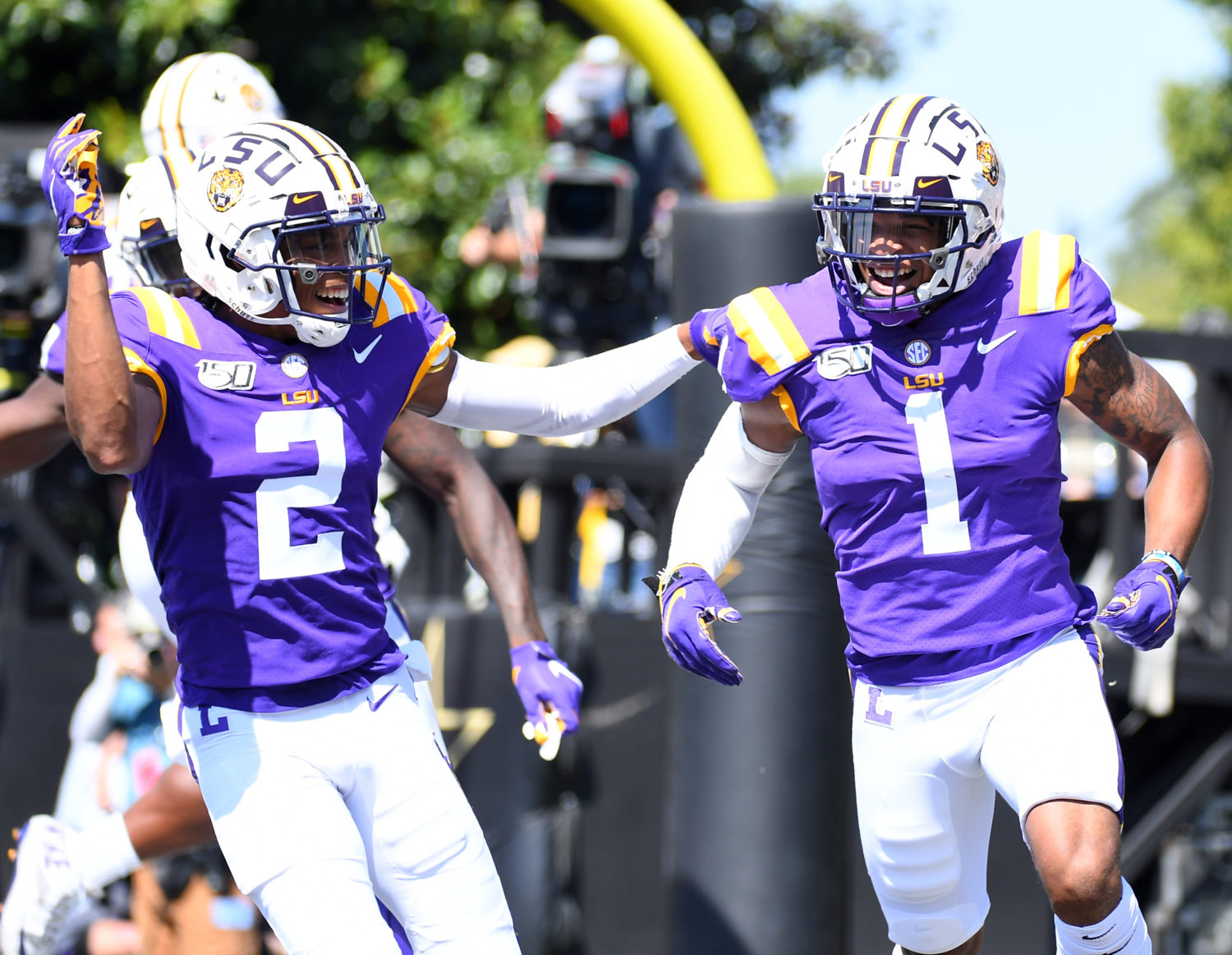
The offense’s historic pace isn’t the problem with LSU’s defense
By Les East
Published:
The LSU defense needs to catch up to the LSU offense.
As strange as that sounds, it’s true.
In fact it’s true in two ways.
First the defense must start playing up to the standard established by the offense if the No. 4 team in the country is going to stay that high or go even higher.
Generally it has been the opposite in recent seasons as LSU has often had an elite defense that was being held back by a pedestrian offense.
But it’s not just the offense’s level of play, it’s also the offense’s pace of play that is leaving the defense lagging.
LSU is playing fast, sprinting up and down the field as its passing game accumulates yards and points at record paces. Joe Burrow already has 17 TD passes in 4 games — just 11 shy of the program record in a single season.
It used to be that the defense had to worry about the offense having 3-and-outs and having to run back on the field after a punt without having adequate time to rest.
Now it’s more likely that the defense will be rushed back on the field because the offense scored, rather than punted, after just a few plays.
Be careful what you wish for …
Of course that’s a good problem to have.
In fact LSU’s defensive problems are a relative thing.
The standard has been set high and Dave Aranda has done such a good job in his previous 3 seasons as coordinator that any defensive shortcomings seem worse than they would with most other programs because they’re viewed in the context of LSU’s typical level of performance.
The defense did hold Georgia Southern to fewer than 100 yards, but that was Georgia Southern.
Then it allowed Texas to gain more than 500 yards, but that was Texas.
Northwestern State had surprising success early on, but never threatened to keep up with LSU after the middle of the 2nd quarter.
Vanderbilt put up pretty good numbers, but that game was over at the end of the 1st quarter.
So the defense’s shortcomings and the offense’s pace have not cost the Tigers.
“Here’s the dilemma,” LSU coach Ed Orgeron said earlier this season. “You want to be able to maybe slow it down a little bit to give your defense a rest. Your defense has to stop them from scoring points so you’re not in a shootout. So we knew we were in a shootout (against Texas). So we felt in the 2nd half, every time we had the ball, we had to score. And that’s what happened.”
But if it ain’t broke, don’t fix it.
The offense, especially the passing game, is working too well to mess with it. The Tigers are averaging 57.8 points per game, tops in the nation. That pace is sure to slow as LSU enters SEC play, but the production is a dramatic change. LSU has averaged more than 36 points once in its history — 38.6 in 2007, when it won its most recent national championship.
The defense has to get better and slowing down the offense is not the proper starting point. Once the defense finds itself, maybe the tempo can and should be adjusted.
“We do need to work together — offense and defense — to build the tempo of the game,” Orgeron said. “When we play great on defense, we can slow it down.”
The ball is in the defense’s court.
Les East is a New Orleans-based football writer who covers LSU for SaturdayDownSouth.com. Follow him on Twitter @Les_East.







